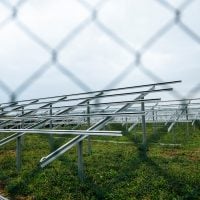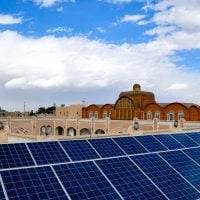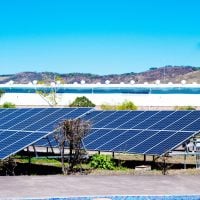Deadline: 26-Jan-23
The Environmental Protection Agency (EPA) is seeking applications from organizations with a demonstrable history of providing effective, results-oriented technical assistance to public water systems.
Training and technical assistance provided to small public water systems, small publicly owned wastewater systems, communities served by onsite/decentralized wastewater systems and private drinking water well owners should be made available nationally to communities and to all personnel of these systems, including personnel of tribally-owned and -operated systems.
National Priority Areas
- National Priority Area 1: Training and Technical Assistance for Small Public Water Systems to Achieve and Maintain Compliance with the SDWA, including Improving Financial and Managerial Capacity
- National Priority Area 2: Training and Technical Assistance for Small Publicly-Owned Wastewater Systems and Onsite/Decentralized Wastewater Systems to Help Improve Water Quality and Sustainable Operations
- National Priority Area 3: Training and Technical Assistance for Private Drinking Water Well Owners to Help Improve Water Quality
Funding Information
- The total amount of federal funding potentially available under this announcement is approximately $25,700,000, depending on Agency funding levels, the quality of applications received, agency priorities, and other applicable considerations. It is anticipated that approximately one to five cooperative agreements will be awarded in National Priority Area 1 and one to two cooperative agreements will be awarded in each of the National Priority Areas 2 and 3, respectively.
- It is anticipated that awards made under National Priority Area 1 will total approximately $22,000,000 in federal funds; awards made under National Priority Area 2 will total approximately $1,000,000 in federal funds; and awards made under National Priority Area 3 will total approximately $2,700,000 in federal funds. It is anticipated that the cooperative agreements funded under this announcement will have two year project periods.
Outcomes
Examples of anticipated environmental outputs from the cooperative agreements expected to be awarded under this announcement for:
- National Priority Area 1, Training and Technical Assistance for Small Public Water Systems to Achieve and Maintain Compliance with the SDWA, including Improving Financial and Managerial Capacity, may include, but are not limited to, the following:
- An increased number of small public water system managers and operators receiving training and technical assistance in regulatory requirements, basic water system operations, and advanced treatment issues, including receiving training utilizing hands-on and other approaches which maximize understanding and knowledge retention.
- An increased number of small public water systems conducting diagnostic and troubleshooting analyses to determine factors affecting performance and compliance with applicable national primary drinking water standards.
- An increased number of small public water systems receiving technical assistance in developing and implementing source water protection plans, asset management programs, energy audits, and water loss analyses.
- An increased number of small public water system managers and operators receiving training and technical assistance in financial and managerial capacity concepts and practices.
- An increased number of board members and other small system decision makers receiving training on asset management, threat mitigation, and other sustainable management and financial concepts.
- An increased number of small public water systems developing plans to implement water system partnerships or other collaboration activities with other water systems.
- National Priority Area 2, Training and Technical Assistance for Small Publicly-Owned Wastewater Systems and Onsite/Decentralized Wastewater Systems to Help Improve Water Quality, may include, but are not limited to, the following:
- For training and technical assistance for small publicly-owned wastewater systems:
- An increased number of system managers, board members, and other decision makers receiving training on sustainable utility management, and based on an assessment of their operations, training on asset management, and other sustainable management and financial concepts.
- An increased number of small publicly-owned wastewater systems receiving or performing energy audits and taking actions to improve energy efficiency based on audit results.
- For training and technical assistance for onsite/decentralized wastewater systems:
- An increased number of community leaders, system operators, or onsite/decentralized Responsible Management Entities receiving training or technical assistance on analyzing treatment alternatives, management requirements, or homeowner education.
- An increased number of onsite/decentralized wastewater systems that have been inventoried, inspected, or have maintenance schedules or manuals for new or upgraded systems
- For training and technical assistance for small publicly-owned wastewater systems:
- National Priority Area 3, Training and Technical Assistance for Private Drinking Water Well Owners to Help Improve Water Quality, may include, but are not limited to, the following:
- An increased number of private drinking water well owners receiving technical assistance and training on topical issues.
- An increased number of private drinking water well owners who receive information in electronic and hard copy formats.
- An increased number of private drinking water well owners who receive information on how to respond to emergencies.
- Increased information, technical assistance, and training to other organizations with activities that affect private drinking water well owners.
Eligibility Criteria
- Eligible applicants under this competition are nonprofit organizations, nonprofit private universities and colleges, and public institutions of higher education. For-profit organizations are not eligible to apply. States, municipalities, tribal governments, and individuals are not eligible to apply. Nonprofit organizations described in Section 501(c)(4) of the Internal Revenue Code that engage in lobbying activities as defined in Section 3 of the Lobbying Disclosure Act of 1995 are not eligible to apply. EPA may ask applicants to demonstrate that they are eligible for funding under this announcement.
- Applicants that do not demonstrate how they will meet the minimum cost-share/match requirement in their application submission will not be considered for funding.
- Applications must address one, and only one, of the three National Priority Areas, although eligible organizations may submit more than one application under this competition as long as each one is separately submitted and addresses only one National Priority Area. Applications that address more than one National Priority Area in a single application will not be reviewed. In addition, applications for National Priority Area 2 must address the two elements of that priority or they will be rejected.
- Applications for awards under National Priority Area 1 cannot exceed $22,000,000 in federal funds; applications for awards under National Priority Area 2 cannot exceed $1,000,000 in federal funds; and applications for awards under National Priority Area 3 cannot exceed $2,700,000 in federal funds. Applications exceeding the amount for the National Priority Area it addresses will be rejected.
- An applicant must demonstrate how it will meet the cost-share/match requirement.
- Applications must substantially comply with the application submission instructions and requirements or else they will be rejected.
- Eligible activities include training and technical assistance only. Infrastructure projects such as repairing water or sewer lines, adding new equipment, or upgrading, retrofitting or rehabilitating existing equipment, are not eligible for funding under this announcement. If an application is submitted that includes any ineligible tasks or activities, that portion of the application will be ineligible for funding and may, depending on the extent to which it affects the application, render the entire application ineligible for funding.
For more information, visit Grants.gov.









































